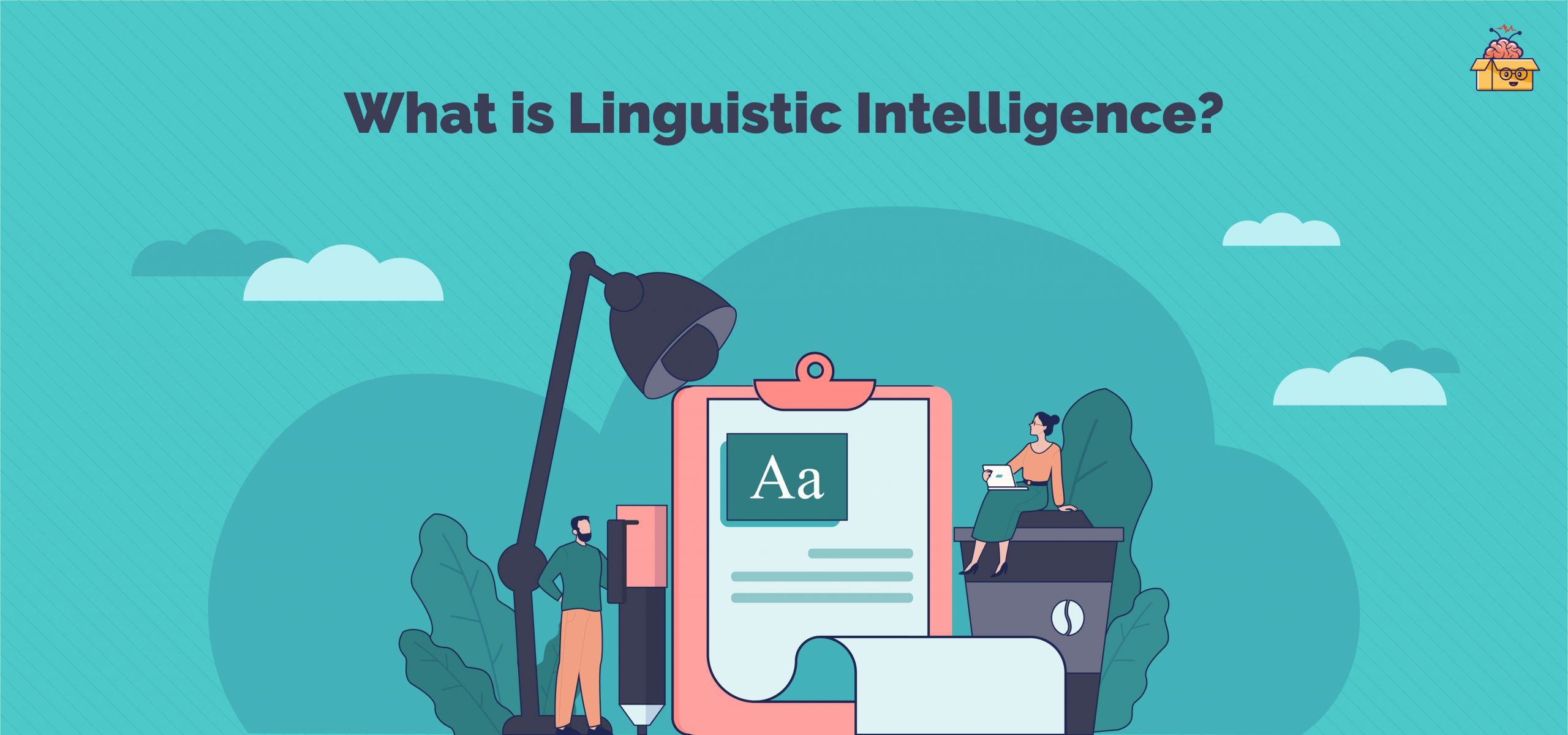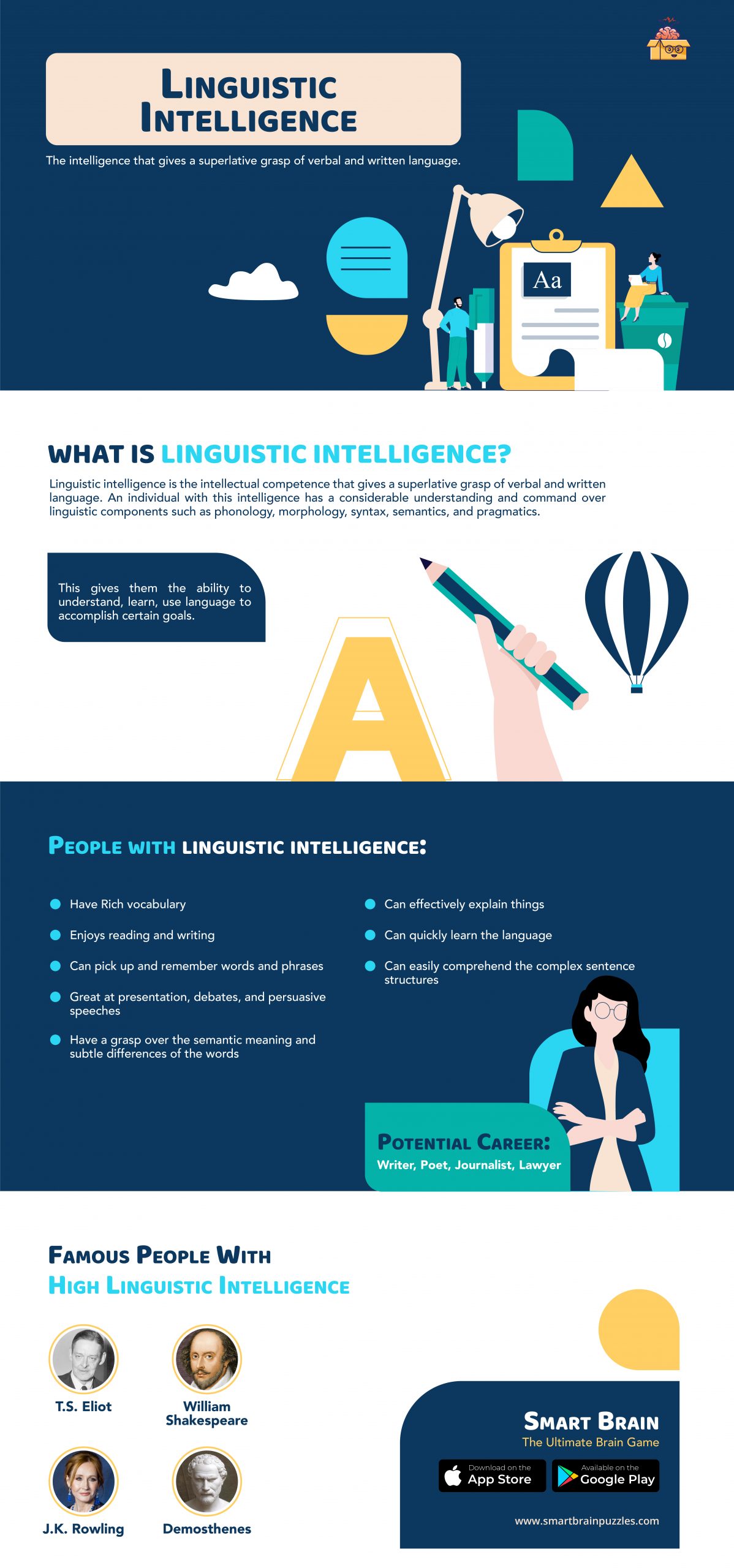-
What is Linguistic Intelligence? (Theory of Multiple Intelligences)

Linguistic intelligence is one of the multiple intelligences proposed by Howard Gardner. This intelligence provides a superior understanding and command over the written and spoken language.
Background: In 1983, the Harvard psychologist, Howard Gardner proposed the theory of multiple intelligences. He suggested that humans intelligence is not just a single intellectual capacity as measured in IQ tests, but rather a range of different intelligences. He proposed 8 different intelligence to showcase the range of human intellectual ability and one of them is linguistic intelligence.
What is Linguistic Intelligence?
Linguistic intelligence, also known as verbal intelligence, is the intellectual competence that gives a superlative grasp of verbal and written language. An individual with this intelligence has a considerable understanding and command over linguistic components such as phonology, morphology, syntax, semantics, and pragmatics. This gives them the ability to understand, learn, use language to accomplish certain goals. Writers, poets, orators, lawyers, and politicians display this intelligence.
As people with verbal intelligence have a deep understanding and appreciation for the words and language, you may find some common characteristics in them.
People with linguistic intelligence:
- Have a rich vocabulary
- Enjoy reading and writing
- Can pick up and remember words and phrases
- Are great at presentation, debates, and persuasive speeches
- Can effectively explain things
- Can quickly learn the language
- Have to grasp over the semantic meaning and subtle differences of the words
- Can easily comprehend the complex sentence structures
Operations of Language and Verbal Intelligence
Gardner explained the operations of language and its importance in human society. He gave examples of different aspects of language and how verbal intelligence contributes to them. Here are three aspects: poetry, rhetoric, and explanation.
Poetry
Poetry exemplifies linguistic intelligence as it needs mastery over the words and language. Such as a superior grasp of semantic, understanding the subtle shades of meaning and words, and stringing the lines together for a cohesive piece that faithfully animates the poet’s emotion and imagery. T.S. Eliot once compared the linguistic logic used for poetry to that of a scientist.
Rhetoric
The art and science of writing and speaking effectively to convenience, persuade, and motivate people is called rhetoric. It requires a high understanding and grasp of language and devices to compose successful writings, speeches, and presentations. This ability is highly developed among political leaders and lawyers.
Explanation
Explanation and teaching is a major aspect of language — it is done either orally or through writing. We see effective use of language to explain in forms of instructions, verses, adages, and fables in written or oral forms.
Famous People With High Linguistic Intelligence
T.S. Elliot
T.S Elliot is among the major poets of the 20th century and a prime figure of the modernist literary moment. In 1946 he won Nobel Prize in Literature for his contribution to poetry.
William Shakespeare
When talking about classic literature Shakespear is the first name that comes to mind. Regarded as the greatest English writer and the world’s greatest playwright, his work has charmed people for centuries. The list of his prolific work includes 37 plays.
J.K. Rowling
J.K Rowling is a top-selling author with over 500 million book copies sold. Her fantasy series of Harry Potter is considered to be an epitome of imagination and linguistic prowess captivating a huge fanbase around the world.
Demosthenes
Demosthenes was an Athenian statesman regarded as the greatest Greek Orator. His intellectual and insightful speeches provided insights into politics and culture during his era. His rhetoric and eloquence were so effective that with his speeches he was able to raise people to march against the Philip of Macedon.

Since You’re Here —
If you are looking for a better way to spend time on your phone and work on your brain muscle, SMart Brain is what you need. A RIDICULOUSLY FUN GAME with 200+ levels of logic, math, creative thinking, word puzzles, and more.
Download Now For FREE
 14790
14790







